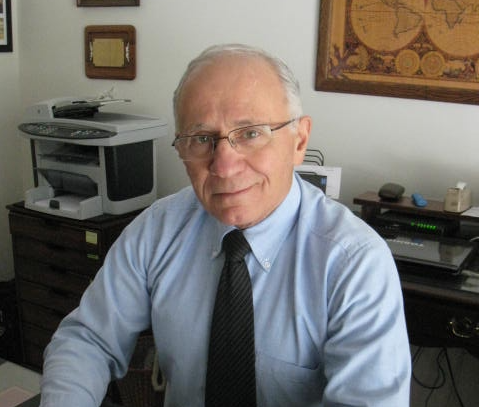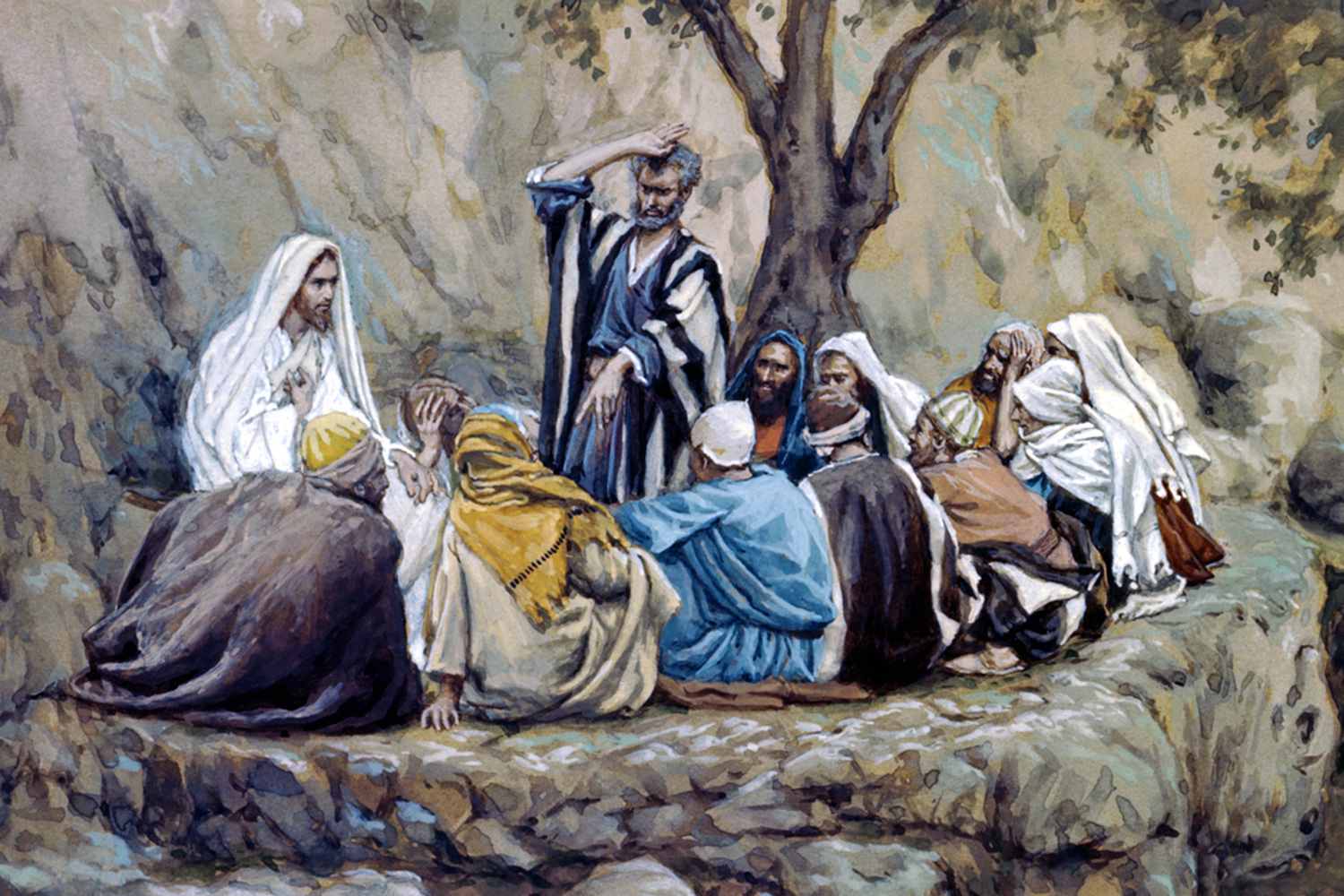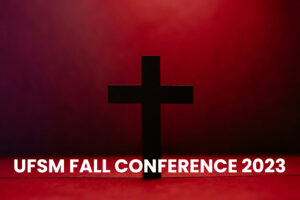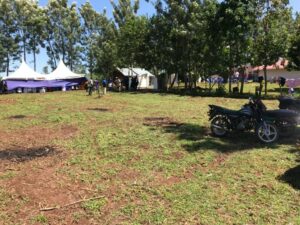– Dan DeVitis
Foreword. This message is woven around much of my spiritual life experience with two spiritual fathers in the faith. It represents the basis for my calling and ministry in and to the Body of Christ. The message was given at the 2017 New Foundations Church Conference, Easley, SC. It is a message to the Church that speaks directly to an absolute foundation that must be laid for all believers, and for a vision that builds upon that foundation and gives direction to a life’s walk in Christ.
“Even if you had ten thousand instructors in Christ, you do not have many fathers, for in Christ Jesus I became your father through the gospel.”(1 Cor. 4:15)
IT IS A MATTER OF LIFE
In place of the word “instructor” in the above verse, some Bible versions use guardians, teachers, tutors, or mentors. One may readily see the Greek meaning for this word is to “train up a child,” doing all that is necessary to promote development. In the realm of the church, there are many instructors who teach church doctrine so the believer not be ignorant but instead become knowledgeable of his/her faith. Then, there are those that instruct in rites and rituals such as water baptism, communion, confirmation and marriage. There are instructors for worship and prayer, and proper Christian behavior, and even training in ministry such as evangelism or pastorship—not forgetting the whole realm of personal, marriage, and family counseling. All of this constitutes the religion of Christianity. It forms a system of faith and worship. It is ministered to the outward man, much as a tutor trains up a child.
Religion in the Christian faith can be positive in laying a foundation for understanding the gospel, fundamental Biblical principles, and the proper nature of relationships. It can also present (or result in) a negative experience with perverted doctrine, legalism, and controlling leaders. Presently, there are believers in both camps.
However, there is something higher than the highest and most respected religion—and that is the matter of life. A father is one that imparts life itself. It is of the inward man, of the spirit and heart. The father brings into being what is not there. As tangible to the outward man of all those things of religion, the elements of life are intangible and unobservable. Yet, they are very experiential. Life allows one to experience things like love, peace, joy, and the intimacy of relationships. God is the ultimate source of all life. Man cannot create life. Whether man, animal or plant, life can only be passed on to future generations as life contained in its seed.
The essence of all life contained in the seed is in its ability to impart both
vitality for existence and the potential for likeness.
LIFE IS IN THE SEED
The Seed of Man
Of those who knew my father, some may say that I am his “spitting-image,” a “chip off the old block.” I am about the same height, build, have potential for some health issues, and even exhibit a similar balding hair pattern. I share his same work ethics, sense of humor, value of family, like of sports, and of the outdoors. So, the life I received from my father not only gave to me a living vitality, it also instilled in me a potential for likeness.
In Genesis 2, we read that “God formed man from the dust the ground, and breathed into his nostrils the breath of life; and man (Adam) became a living being.” (vs. 7) This was Adam’s created life. Adam therefore had within himself this created seed of life that might be passed on through generations to come. The life in this seed contained the vitality to exist as well as the potential for his likeness. This thought is confirmed in Genesis 5:3, “And Adam lived one hundred and thirty years, and begot a son in his own likeness, and after his own image, and named him Seth.” Adam’s life seed was passed down through all the generations and populations of the earth. It was passed on to your father and my father, in which we also receive that vitality of life and the potential for likeness. Thus formed is the created family tree from Adam to this present day.
The Seed of God
There was another kind of life in the Garden which source was the Tree of Life. Contained in the fruit of this tree was the seed for God’s own life, that is, His own eternal vitality for existence and potential for His likeness. (The Tree of Life is, of course, a prefiguration of Jesus Christ.) Adam’s sin of rebellion forfeited his right to eat of this tree, “…and now lest he put his hand and take also of the tree of life, and eat, and live forever”—therefore the Lord sent him out of the garden of Eden…” (Gn. 3:22-23) My dear brothers and sisters, do you see now that this thing called salvation is much more than being saved from hell for some heavenly existence. And that, in Christ one has been, “born again not of corruptible seed, but of incorruptible, through the *word of God which lives forever.” (1 Pet. 1:23, *word, Gk. Logos, who is Christ)
In this spiritual seed, the seed of the Son of God, is God’s own life, and in which is His eternal vitality for existence and the potential for His likeness.
Thus, our Father in Heaven is not only the source of our created life passed down through the generations from Adam, but He is also the source of uncreated life passed down through His divine Son Jesus Christ: “to as many as received Him, to them He gave the right to become children of God, to those who believe in His name; who were born not of the will of the flesh, nor of the will of man (Adam), but of God.” (Jn. 1:12-13) This spiritual fact is exceedingly and abundantly above all we can ask or think. It is glorious. O’ please take a moment and reflect on this fact. There can be no true progression into spiritual life without this understanding and experience.
SPIRITUAL FATHERS
Thus far we have discussed life in the context of created life from our heavenly Father by way of Adam, and of eternal life by way of His Son Jesus Christ. These are our two and only sources for life. None of us have had a choice in the first, the life that has been passed down in the seed of Adam to our earthly fathers. We all, however, have a moral choice as to whether to receive the life of our heavenly Father passed down in the spiritual seed of Christ. Now remember, life is in the seed, and in that life is both vitality for existence and the potential for likeness!
Now, what about spiritual fathers? Though a spiritual father may greatly impact one’s life, he is never exalted to a place of intimacy, fellowship and obedience above that of our heavenly Father. Having said that, it is from my experience that a spiritual father is one that has drawn so close to the heart of our heavenly Father that he senses His yearnings to impart into His children some measure of His own life. Being of a triune nature, body, soul, and spirit, man is be born in the image of the triune God, Father, Son, and Holy Spirit. And, in His seed, which is the seed of Christ in the believer, contains all that is necessary to “… be partakers of the divine nature…” (2 Pet. 1:4) This speaks of having an impartation of His likeness. Seth was born in the image and likeness of Adam, so too the believer is born in the image and potential for likeness of Christ. A spiritual father senses this in a true and experiential way and imparts it to others.
Albert Wadel: A Spiritual Father to Lay a Foundation
Albert was a modest dairy farmer. He grew up as part of the plain brethren related to the Mennonite faith. The more Albert tried to conform his life to the standards of that faith, the more he failed. Of course, he faithfully participated in all the religious aspects of the faith, yet his inward man remained bound with a bad temper, impatience, self-centeredness, and perhaps thoughts that should not be thought. Religion only seemed to have brought out increasing frustration, even to the point of despair. “O wretched man that I am! Who shall deliver me from the body of this death?” (Rm. 7:24)
One day Albert’s eyes were suddenly opened… a revelation! A mystery was revealed. Scriptures that he had read many times over, even memorized, suddenly came alive. Foremost among them was Romans 6:1-7:
“What shall we say then? Are we to continue in sin so that grace may increase? May it never be! How shall we who died to sin still live in it? Or do you not know that all of us who have been baptized into Christ Jesus have been baptized into His death? Therefore we have been buried with Him through baptism into death, so that as Christ was raised from the dead through the glory of the Father, so we too might walk in newness of life. For if we have become united with Him in the likeness of His death, certainly we shall also be in the likeness of His resurrection, knowing this, that our old self was crucified with Him, in order that our body of sin might be done away with, so that we would no longer be slaves to sin; for he who has died is freed from sin.”
Aha, to Albert, an increasingly greater measure of God’s grace was revealed—free from the old self-struggles, no longer in bondage to the undesirable character of his “old man.” Now, baptism meant more than the water baptism of repentance. It was now a baptism into Christ, knowing the oneness with Him in His death and resurrection into newness of life. A new man arose, free from fleshly and worldly demands; Albert found rest and peace for his soul.
Apollos was a very influential teacher in the early Church, often ministering along-side Paul. It is written of him: “Meanwhile a Jew named Apollos, a native of Alexandria, came to Ephesus. He was a learned man, with a thorough knowledge of the Scriptures. He had been instructed in the way of the Lord, and he spoke with great fervor and taught about Jesus accurately, though he knew only the baptism of John. He began to speak boldly in the synagogue. When Priscilla and Aquila heard him, they invited him to their home and explained to him the way of God more adequately.” (Acts 18:24-26)
O’ what a distinction there is between knowing only the baptism in water and the revelation of a baptism into Christ. One is outward and of the determined man, the other is inward and of the life giving Spirit. Even John the Baptist declared, “I indeed baptize you with water to repentance, but he that comes after me is mightier than I … He shall baptize you with the Holy Ghost, and with fire. (Mt. 3:11) The first is a baptism that draws upon all the might of the natural man to repent and turn from sin. The second is the impartation of life (out of death.)
I had the honor to give the eulogy at Albert’s funeral. In it I mentioned that Albert’s legacy was bound in two scriptures, Romans 6 and Galatians 2:19-20, which reads:
“For through the Law I died to the Law, so that I might live to God.”
“I have been crucified with Christ; and it is no longer I who live, but Christ lives in me; and the life which I now live in the flesh I live by faith in the Son of God, who loved me and gave Himself up for me.”
Like the apostle Paul, Albert died to the Law, the religion of his past life. When citing this scripture, he would groan in the Spirit for its reality… “I have been crucified with Christ, it is no longer I who live but Christ lives in me…” Its reality meant life!
In very like manner, Watchman Nee locked himself in his bedroom refusing to do anything of ministry. He was in total frustration over his inability to live righteously, to part from the inward demands and control of his old man. Then one day the light came on…the reality of Galatians 2:20. He came bounding down the stairs shouting of the great news, “I am dead!” (This was much to the confusion of the one present.) Watchman Nee found life…out of death! As surely as Nee remembered the day and hour of his new birth in Christ, he then remembered the day and hour he found his death and resurrection to life in Christ. He would later write, “Possessing this life is a miracle.”
| This Foundation principle of Galatians 2:20 MUST be laid in every church, in every believer…WITHOUT exception. |
Sergio Valori – Imparting Vision: A “Hope” of Things to Come
I first met Sergio in 1973. It was actually Albert who remembered him from his past and suggested we invite him to speak to our small fellowship. This was the time of the Charismatic Movement when most speakers were addressing the role of the Holy Spirit, tongues, miracles, prophecy, spiritual power, moving in spirit gifts, etc. Sergio’s message was quite different. It was then I knew he had a different word, a sobering message, one that I was drawn to…Spiritual Maturity.
In Sergio’s earlier days he ministered and traveled much with his spiritual father across the country and overseas. He moved readily in Pentecostal/Charismatic circles ministering in the Word and in the gifts of the Holy Spirit. When this message of spiritual maturity was placed upon his heart he knew he had come to a spiritual crossroads. One direction would take him into the larger, more welcoming charismatic circles; the other direction would be more narrowing and less popular. His meetings would be with small groups and individuals. He chose the latter, to follow the calling upon his heart. I once heard a minister critique Sergio as one whose, “message is too heavy,” and that he needed, “to lighten up.” Yes, it is a most sobering message and unappealing to many. He remained faithful to his calling and this message until his passing in June of 2015.
At that first meeting with Sergio, his message focused on righteousness. He clearly wanted to impart the understanding that righteousness is as two sides of a coin. On the one side is righteousness by grace, on the other it is by work. Imputed righteousness, that which is by grace, is clearly seen in scripture. “…even the righteousness of God through faith in Jesus Christ for all those who believe; for there is no distinction.” (Rm. 3:22) Christ’s obedience and righteous walk before His Father is simply reckoned upon all those who believe in Him. However, a lesser-considered embodied righteousness is also clearly seen in scripture. “Being filled with the fruits of righteousness, which are by Jesus Christ, unto the glory and praise of God,” (Phil.1:11) and “anyone who does not practice (doeth) righteousness is not of God, nor the one who does not love his brother.” (1 Jn. 3:10)
The message became clear. Maturity is not a matter of how one moves in the gifts of the Holy Spirit, knowledge of the Bible or doctrine, or how hard and faithful one has been working for the Church. Simply, it is bearing the fruit of Christ’s inward righteousness in our daily life. Sergio’s legacy is bound in the scripture, “Wherefore leaving the doctrine of the first principles of Christ, let us press on unto perfection; not laying again a foundation of repentance from dead works, and of faith toward God….” (Heb. 6:1)It is going on to perfection, or maturity. It is maturing into godly character.
PERSONALITY AND CHARACTER
Sergio would always say, “character matters.” And it does, you know. Believers are to be discerning and not misled by one’s personality. The outward personality can be deceptive. One can be very friendly, sociable, charismatic, likable, but lacking much quality in inward character. Once a very bad situation occurred in a small local church when they “selected and hired” a pastor. This pastor had a most likeable personality. He was outgoing, appeared zealous for the faith, and said all those things the good church people wanted to hear. But once in position of authority, this man’s character began to surface. He became very self-serving, controlling, and deceptive. When an inevitable church division occurred, he actually tried to take control and ownership of the church building. This good little church eventually fragmented and later died completely. There is just no substitute for one with, “…a broken spirit, a broken and contrite heart.” (Ps. 52:17) God says He “dwells in the high and holy place, with him who has a contrite and humble spirit.” (Is. 56:15) Good character is gentle, sincere, good, honest, and selfless.
Character by Grace. There is a work that is by self-effort. One may toil at doing good things, such as trying to become more self-disciplined and making resolutions and oaths, committing one’s self to certain tasks, etc. However, there is a work (Literally in the Greek) that is really an expression of an inward benevolence. It is not so much the goodness of what one does, but more so the goodness of what one is. The good is that a miracle has happened, a miracle that not only breathed eternal life into a believer, but has also deposited the potential for His likeness. This goodness in His character latently resides within every believer…it is in the deposited seed of Christ in the heart.
“According to his divine power hath given unto us all things that pertain unto life and godliness, through the knowledge of him that hath called us to glory and virtue: Whereby are given unto us exceeding great and precious promises: that by these ye might be partakers of the divine nature, having escaped the corruption that is in the world through lust.” (2 Pet. 1:3-4)
Salvation through Christ’s agony and death on the cross is exceedingly above and beyond all one can conceive in mortal understanding. It begins with the impartation of God’s own eternal life into one’s being, a life in intimate relationship and bonding with the Father, the Son, and the Holy Spirit. It begins at the moment of new birth, and continues through all eternity. Glory! Also, in that deposited seed of life is all the potential for His likeness… ye might be partakers of the divine nature.
Beloved, this is embodied righteousness. This is a work that is also provided by grace. Albert would often say, “God will not require anything of you that He will not also provide.” God requires righteousness, godly character, godly behavior, and He provides it in the seed of His Son. In my early years of faith, I grew up with the expression, “believe it and receive it.” The emphasis then was more towards outward gains such as healing and prosperity. But with maturity comes the realization that the exercise of faith in believing in the abiding divine nature will bring forth its fruit. Jesus said, “He who believes in Me, as the scripture has said, out of His Heart will flow rivers of living water.” (Jn. 7:38)
Image and Likeness. There will be a day, in the resurrection, when we will see ourselves in the image of Christ, donning the same eternal spiritual body. (1 Cor. 15:42-44; 1 Jn. 3:2) But, of His likeness, what will His eyes see—this One who looks “with eyes like a flame of fire” upon the heart of man? To what measure will He see of that divine nature: love, joy, peace, longsuffering, gentleness, goodness, faith, meekness, temperance…”? (Gal. 5:22-23) Will our fruit be mature? Will we be ready for the Master’s use?
LEGACY
Quoting a friend, “There are many ingredients in the recipe of life.” Many touch our lives in ways that change our course of life and way of thinking. This is true in the natural as in parents, teachers, family, and friends, and by society in general. But the saying is even more true when applied to spiritual life and the Body of Christ, where “every member supplies.” This is seen in the writings of men of faith now deceased, church fellowships, and simply many brothers and sisters encountered in Christ. But the impartation of greatest depth is by those spiritual fathers.
Personally, my life now bears the legacies of two spiritual fathers whom I have loved so very much, and equally miss. And, that legacy is in the spiritual reality of scriptures such as Galatians 2:20; Romans 6; Hebrews 6:1; 2 Peter 1, and Ephesians 4:11-16, where they had breathed a breath of life.





